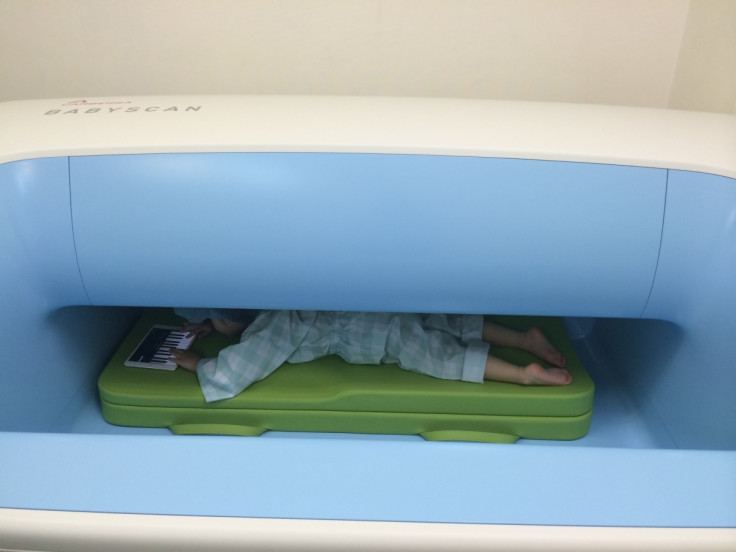Fukushima Fallout: Japanese Scientists Develop World's First Radiation Baby Scanner

University of Tokyo scientists have built the world's first whole body scanner capable of accurately measuring internal radiation exposure in babies and children living in the Fukushima Prefecture. The aim is to ease the worries of concerned parents.
BABYSCAN is a whole body scanner specially designed so that children can lie down and play or read a book while being scanned, and the machine is able to detect up to 50 Becquerels per body.
Due to their lower body mass, the radiation intake of a child, which would be an equilibrium level of 60 Becquerels, wouldn't be picked up by the nuclear industry-grade whole body scanners currently deployed by the Japanese government, which are programmed to detect adult equilibrium levels of 250 Becquerels per body.
BABYSCAN is so sensitive that it can even pick up potassium-40, a naturally occurring radioactive isotope present in all living things.
So far, one of the scanners has been installed at the Hirarta Central Hospital in Fukushima and thankfully, no abnormal radiation has been detected in the first 100 children tested using the machine, only normal levels of potassium-40.
"We are happy to report that radiocesium was not detected in any of the 100 subjects," said a research paper about the new machine.
Fallout from Fukushima
The Tōhoku earthquake and tsunami in March 2011 hit the Pacific coast of Japan and caused a major nuclear disaster at the Fukushima Daiichi nuclear power plant. Three of the six nuclear reactors suffered meltdowns, releasing almost 30% more radiation than the Chernobyl disaster in 1986.
While none of the 16,000 victims of the Tōhoku earthquake perished from radiation exposure, Japan's health ministry continues to be concerned about the nuclear fallout from the Fukushima power plant and how it could be affecting people living in the region.
Last week, it was announced that a research team working with the Health, Labour and Welfare Ministry will be studying the plant workers who helped to contain the nuclear disaster for signs of thyroid cancer.
About 1,972 Fukushima power plant workers went to work at the plant right after the disaster started, and their thyroid glands were exposed to radiation doses exceeding 100 millisieverts.
Another 2,000 workers from the Tokyo Electric Power Co. also helped during the disaster, but it is believed that they were exposed to lower doses of radiation.
Thyroid cancer fears
The radiation iodine released during a nuclear disaster has a tendency to accumulate in the thyroid gland, particularly in young people, and so far 53 people under the age of 18 living in the Fukushima Prefecture have been found to have thyroid cancer.
Across the ocean in the US, researchers from the Radiation and Public Health Project in New York and Jacobs University in Bremen have found that Californian babies born in 2011 have suffered from a significant excess of hypothyroidism.
The study, published in the Open Journal of Paediatrics, states that the cause is due to radioactive contamination from tiny quantities of Fukushima fallout radiation that travelled 5,000 miles across the Pacific Ocean to the West Coast.
© Copyright IBTimes 2025. All rights reserved.






















